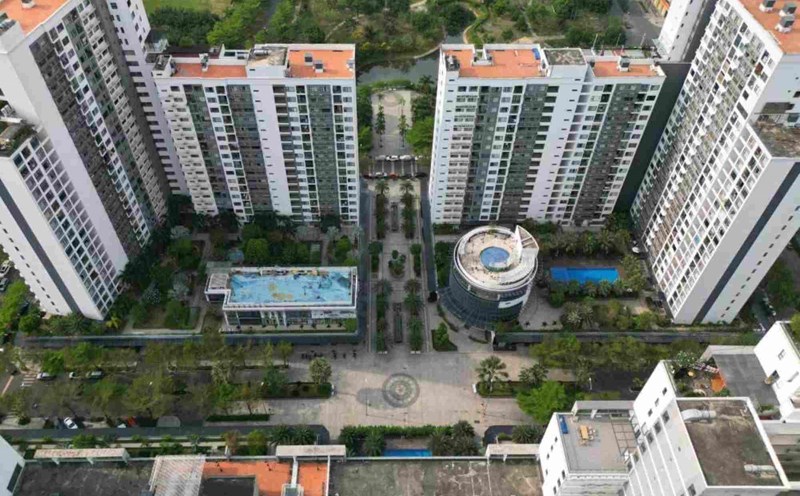Ho Chi Minh City is one of the localities most proficient in solving difficulties for real estate projects in the area in recent times. However, up to now, hundreds of documents have been submitted to confirm the determination of land prices because the authorities have not found a unit to appraise land prices, even though they have issued invitations to... a few dozen times.
According to the Ho Chi Minh City Real Estate Association, there are currently more than 150 projects in the area that have to stop implementation, of which, up to 60 - 70% of projects are stuck in the land valuation stage to calculate land use fees.
Determining land prices is facing many difficulties and problems, mainly falling into records with decisions on land allocation, land lease, and permission to change land use purposes according to the Land Law 1993, Land Law 2003 and land lease records with annual rental payments.
The main difficulty in determining land prices lies in hiring consulting units to determine land prices when these consulting units refuse to participate, because at that time, the collection of input information to determine land prices was very limited, in some cases it was almost impossible to collect.
A report from the Department of Agriculture and Environment of Ho Chi Minh City also shows that the whole city has nearly 100 enterprises with the function of valuation. However, when reviewing, there were less than 10 enterprises still operating land appraisal. Many records have been stalled because they cannot hire consultants, and there are even many cases where "red-eyed" searches cannot be hired. This has caused the process of determining land prices to take many years and has not been handled yet.
The investor of a housing project in District 7 is having a project "confused" in land use fees, indignantly saying that the project has been completed but cannot be sold because they have to wait for financial obligations to be fulfilled. It is not possible to want to transfer to circulate cash flow. Not only that, the fact that a project can only be charged land use fees for many years, even decades, also increases the arising costs for businesses. Because while waiting for valuation, businesses still have to bear interest costs and opportunity costs.
In particular, for projects that were previously subject to land use fee calculation, businesses continue to face huge challenges with additional payables greater than initially estimated, leading to the risk of losses. The evidence is that in the past, many businesses have been unable to fulfill their financial obligations due to not being able to predict the high cost of land use fees.
CS Nguyen Dang Tu, Ho Chi Minh City Bar Association, expressed his opinion that Decree No. 71/2024 has specifically stipulated the order and content of determining land prices according to 4 methods: comparison, income, surplus and deduction. However, reality shows that land valuation is still facing many difficulties due to many barriers in information collection and the market not having transparency in transaction data.
"The real estate market has so far lacked transparency, especially in the disclosure of transaction information, leading to difficulties in data collection. This affects the ability to find suitable comparative assets in the comparison method, as well as the accuracy of input data for the surplus method, income method or deduction method. In addition, in recent times, many public land auctions have recorded the phenomenon of pushing prices up, causing market fluctuations. This makes the collection of valuation information even more complicated, said Premier Nguyen Dang Tu.











